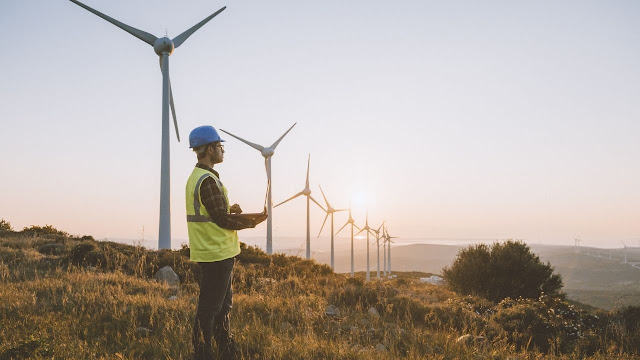The energy supply of the future is facing major challenges in the energy systems. How can the security of supply and grid stability in a country be guaranteed in view of volatile power sources? Intelligent power grids, energy storage, and load management technologies are intended to create the basis for the energy system of the future to be efficient and safe.
Conversion with an eye for the whole in the energy system
Smart grids: new networks for new energy
In addition, the power grids of the future must be prepared for the fluctuations in power generation from renewable energies. Much smaller generation systems are already connected to the grid, for example, photovoltaic systems on house roofs. Electricity is thus fed in more decentrally. In order to regulate this "two-way traffic" in the power grid, what are known as smart grids are required - intelligent networks that use a variety of measures to ensure efficient interaction between generation, storage, network management, and consumption. For this purpose, the conventional network must be further developed with a new measurement, control, and regulation technologies.
Smart Markets: The consumer as producer
Thanks to digitization, the connection between generation and demand can be achieved in the smart market. For example, by setting up intelligent measuring systems (smart meters) that replace the familiar electricity meter at home. These new systems should not only measure electricity consumption or the amount of electricity fed into the grid in real-time but also, for example, provide network operators with important information about the network.
Energy storage: when the sun isn't shining
A pioneering approach is sector coupling based on so-called power-to-gas technology. Hydrogen is produced by the chemical splitting of water, which can then be stored or used as fuel. With the additional use of carbon dioxide - for example from a biogas plant - methane can also be produced from hydrogen. This can be fed directly into the natural gas network.
Concepts like these, which connect different sectors with one another, can create synergies and contribute to decarbonization based on green electricity. For the security of supply, flexible, conventional power plants are required, which guarantee reliable performance when little electricity can be generated with renewable energies.
Energy transition as a social issue
Conclusion
What is needed is a future-oriented strategy that optimizes the set goals technically and economically and achieves a justified reconciliation of interests, taking into account the general social conditions. Dena is accompanying the energy transition in Germany with concepts, information, and network processes. Together with partners from politics, administration, and business, she develops solutions and strategies for future-proof, intelligent energy systems that guarantee a sustainable and secure energy supply. Dena takes on the moderation of multi-stakeholder processes, policy and strategy advice, and the preparation of energy industry reports and studies.
More tech topics: Empowerment Technology







.jpg)









No comments:
Post a Comment